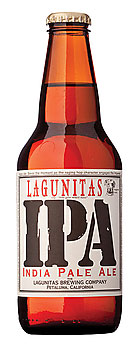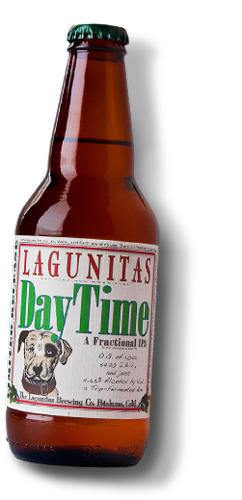Tony Magee, the thoughtful and outspoken founder of Lagunitas Brewing, sounded off on a variety of beer industry topics and trends during Tuesday’s Brew Talks meetup in Chicago.
With the inner workings of his own second facility serving as the backdrop to the talk, Magee expounded on mergers and acquisitions, building second breweries, and other issues that have driven much of the national conversation surrounding craft beer of late.
On launching a second brewery

“Even though this plant ships to 30-plus states, people in Chicago feel like its theirs,” he said. “Let them drive the bus, I’m all into it, it’s cool.”
Now operational in both Chicago as well as the brewery’s Petaluma, Calif. headquarters, Magee is able to look back and reflect on the process of constructing a second brewery. The verdict? It was much easier to build a facility the second time around.
“Petaluma took us 15 years,” he said. “This took us 11 months.”
As for the trend of growing via second breweries – Sierra Nevada, Oskar Blues and Victory, among others, have all recently expanded into new locations — Magee said he believes it will continue.
“I think it’s inevitable,” he said. “There’s going to be breweries like us all over the place.”
Well, not exactly like Lagunitas, at least when it comes to tax breaks and other incentives some states use to lobby brewers.
“When I see other breweries applying for it, trying to get that stuff, getting states to compete and pass laws,” he said, “It seems like we’re becoming the people we set out not to be when we first started craft breweries. When the power gets handed to you, what do you do with it?”
On mergers and acquisitions

As you might surmise, Magee isn’t too crazy about the idea of selling out.
“We’re in our 21st going into our 22nd year here. There’s nothing about it now that would be recognizable to itself 5 years ago,” he said. “This thing is so fundamentally different than it ever was. So when you start making deals that involve movement of equity, if you’re doing it because it’s your time to step aside, well that might be the thing to do. But to do it in a way to grow and accelerate your growth, I think represents a bit of impatience.”
Of course, financing rapid growth at a brewery is hard work and banks can sometimes be reluctant to lend. Given such staunch opposition to private equity then, Lagunitas would often stare debt right in the face when it needed to grow. Magee financed hundreds of thousands of dollars worth of equipment through “application only, over-the-internet leases,” he said.
“Toughed it out, saw it through, so that the equity was mine when it was over with,” he said. “Then you still find things to spend equity on, like bringing in really smart managers.”
On Buyouts and National Craft Brands
Magee said he believes it’s not out of the realm of possibility that in the near future, taking on private equity becomes a more common strategy employed by brewers.
“Private equity will only invest in people that they think they can do something with,” he said. “What happens when you have 100 craft breweries, 200 craft breweries, all with private equity money and all of them trying to create the value they need to create?”
And when the first domino tips, he said, the rest will fall fast.
“I wouldn’t be surprised if it happened very quickly once it starts too.”
On Style Trends

“[Session beers] will allow us to sell straight down into the belly of the Bud, Millers, and Coors’ of the world,” he said. “Those beers have a place. There’s a reason why 4.5 percent beers are delicious.”
That said, there isn’t enough on the raw ingredients side, he said, to sustain session’s push into the so-called belly of the Bud, Millers, and Coors’ of the world.
“Craft brewers have to become more connected to the farmers that grow not only the hops, but also the malt,” he said. “We contract for barley now in the field before it gets planted.”
So where does he see it all going?
“By 2018, four years from now, craft will require all of the acres in all of Yakima Valley to be in production of aroma varieties only, which leaves almost no acreage at all for Bud, Miller and Coors growing the CTZ varieties that they would make into extract.”
Complete video of Magee’s Brew Talks conversation can be viewed above.
